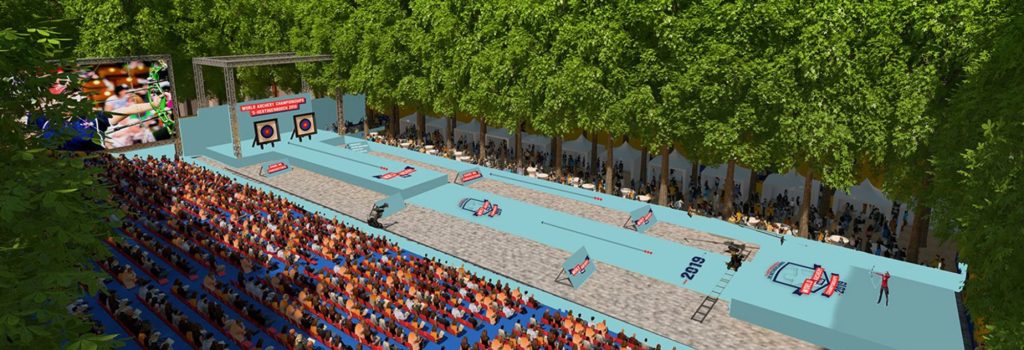
Every two years, the archery world holds a target World Championships. This is the longest running international competition in target archery, and has a history going back to 1931, when World Archery was still known as FITA. It was held every year – with a break for WW2 – up until 1959, when it switched to every two years. The associated para-archery competition has been running since 1998 in the same years.
Normally, the para competition is in a different city, but this year both competitions are being held in June in the Dutch city with the difficult name: ‘s-Hertogenbosch.
Pronounced something like ‘share-ter-gem-boss’, luckily, locals and foreigners alike are happy to refer to it as Den Bosch (‘den boss’). A smaller Dutch town with fortified walls and a rich history, its most notable resident was the artist Hieronymus Bosch in the 15th century.
The 50th edition of the biennial event is shaping up to be the largest in history, with 91 countries and 607 participating athletes. The champs are important not just because of the world titles that are available, but because in the year before an Olympics they act as the primary qualification tournament for the Tokyo 2020 Games –primarily for team places.
There are 56 spots available; the winners of the first team match after qualification each gain a precious three Olympic places for their country – 24 men, and 24 women, and a full team place. There is also a secondary tournament which qualifies a handful of single spots. Four years ago, the championships and qualifiers were held in Copenhagen, in a tournament beset by wind and rain.
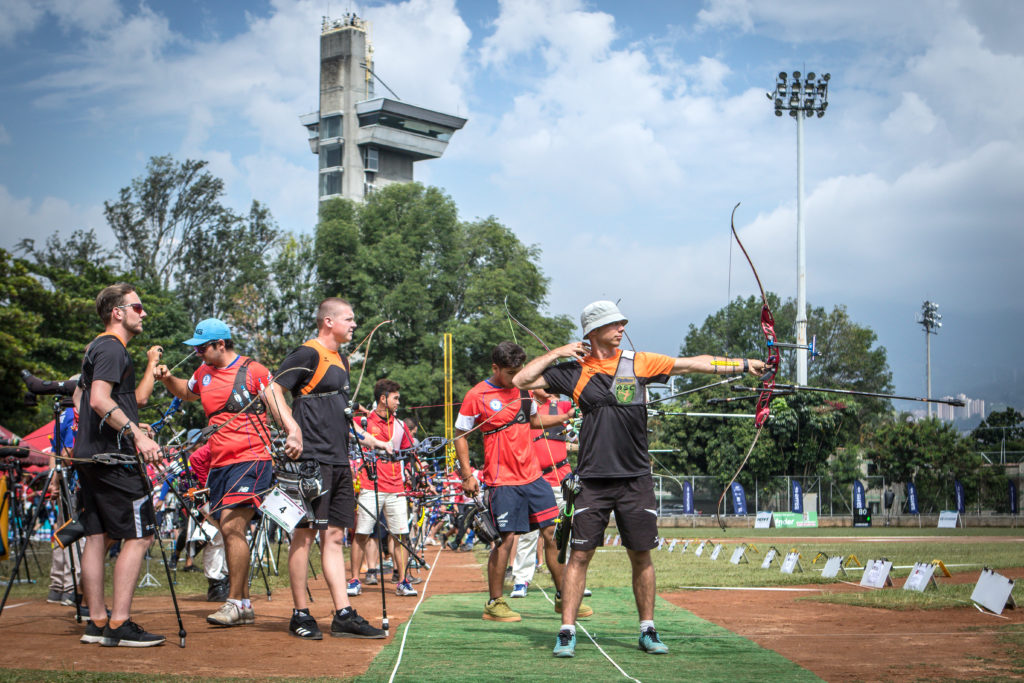
For many nations and squads: this Olympic match is the real competition. A world title is a big deal, but in our sport, gaining an Olympic place and then competing for your country remains the reference point for the rest of the world, and the mark of an archery career. Coming home with three spots for Tokyo is, on a national level, at least as important as winning a medal – and often more so.
For the compounds though, becoming World Champion is one of the pinnacles of the sport. The individual World Champions are Song Yun Soo (Korea) and Sebastien Peineau (France). Song did not make the Korean team this year and is unable to defend her title, whereas Peineau will be returning – and in at least some form.
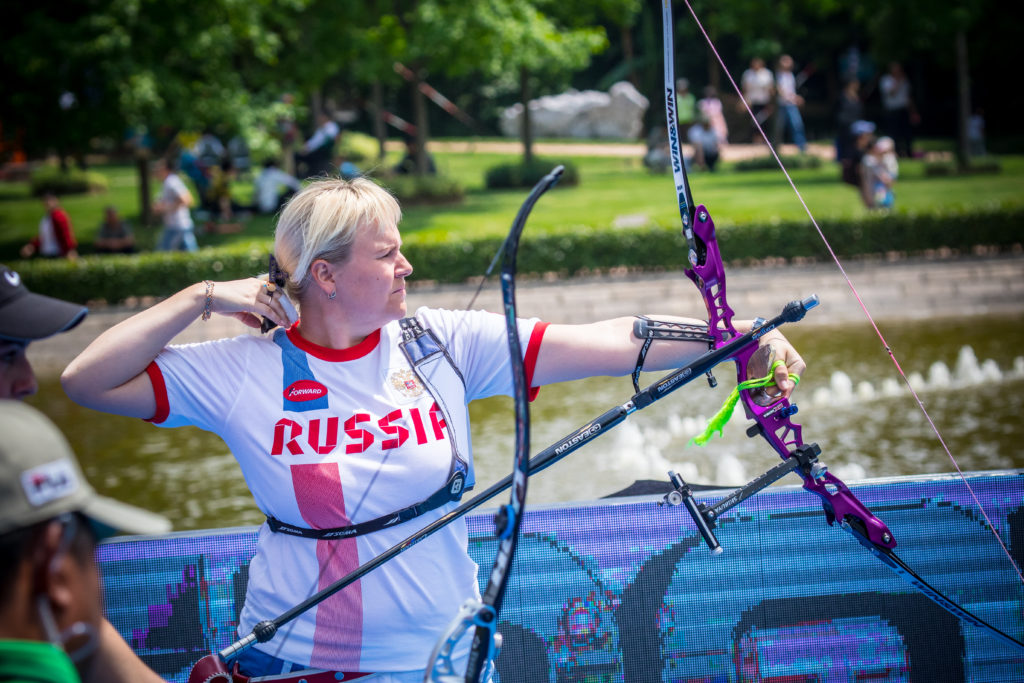
On the recurve side, the individual holders are Im Dong Hyun (Korea) and Ksenia Perova (Russia). Im, twice a world champion, did not make the final Korean team this year and will not be defending his title. Perova, a ferocious competitor and one of the most perennial dangers in the women’s field, will be looking to get back on the podium once again.
At Bow, we decided to take a good look at some of the bigger archery nations who will be competing and what their chances might be. The sport remains dominated by Asian nations, but the results at last year’s Asian Games hinted that the era of total Korean domination may be over – although it’s still probably unwise to go betting heavily against them.
It should not be forgotten that the host nation is still highly likely to walk away with medals, particularly on the men’s side of the sport in both recurve and compound.
GREAT BRITAIN

Copenhagen 2015 world bronze medallist Adam Ravenscroft is among the archers that have been named to Great Britain’s compound team for the worlds. He’ll be joined by James Mason and Neil Bridgewater, the same team that won the compound men’s team title at the European Archery Championships in 2018.
The British compound women’s team was named as Lucy Mason, Ella Gibson and Layla Annison. Uniquely amongst all nations competing; all three are juniors. The team beat the junior ranking round world record at the European Grand Prix in Bucharest, Romania in April, and made the finals at the Antalya World Cup. An exciting team full of potential, with an average age of just 17, they are looking to compete with the very best senior squads.

The recurve women’s team are Sarah Bettles, Naomi Folkard, Bryony Pitman, and the recurve men’s team are: Tom Hall, Patrick Huston, and Alex Wise. Naomi Folkard will make her eighth consecutive appearance at an outdoor World Championships for Great Britain, of nine in total. Bryony Pitman made a top eight finish in qualification at this year’s Shanghai World Cup.
USA

Three-time Olympic medallist Brady Ellison and newcomer Casey Kaufhold finished top of the USA recurve team trials for the world championships. They will be joined by Jack Williams, Tom Stanwood, Erin Mickelberry and five-time Olympian Khatuna Lorig. It will be Kaufhold’s first championships – but Lorig’s 10th. The more surprising omission from the team is Mackenzie Brown, who had a disastrous trials.
The USA’s senior recurve team has not seen quite as much strength in depth in recent years, despite a well-developed junior program. Indeed, Stanwood and Mickelberry are not full-time athletes. It remains to be seen if the USA can qualify full teams for Tokyo in the Netherlands. Ellison, however, has hit a rich seam of form recently and looks to be a likely individual podium contender.
Braden Gellenthien, Kris Schaff, James Lutz, Paige Pearce, Alexis Ruiz and Cassidy Cox are the six compound archers that will represent the USA. Gellenthien has finished on the podium at the outdoor world championships three times, accruing two bronze medals and a silver. He finished third in Mexico City in 2017. It would be his ninth appearance at an outdoor world championships.
The two veterans are joined by a first-time international in Lutz – who nevertheless won gold on his debut in Antalya – to attempt to extend the USA’s strong record in the compound men’s team event. The USA is the defending world champion and has won seven of the 12 available titles since compound was introduced to the championships in 1995.
KOREA
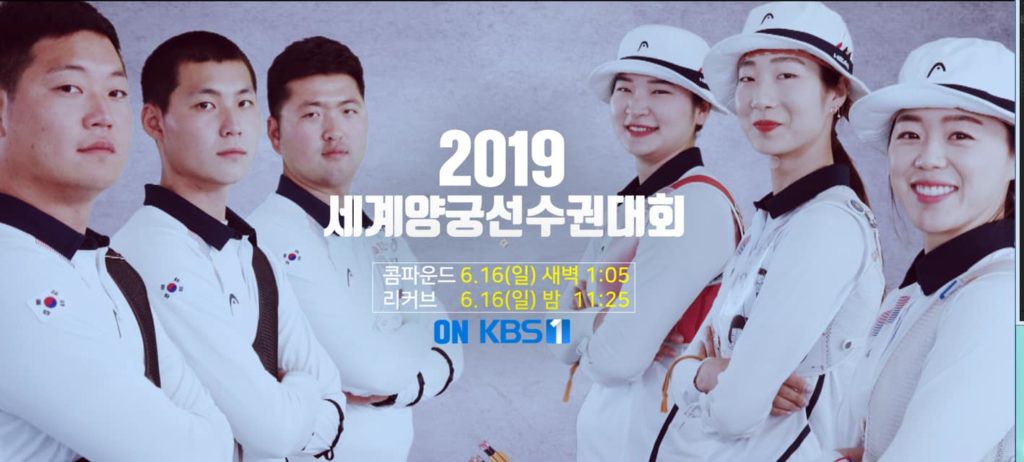
Kim Woojin, Lee Woo Seok, Lee Seungyun, Chang Hye Jin, Kang Chae Young and Choi Misun have been named as the Korean recurve squad that will compete at all top level events in 2019. It marks a return to the team for Olympians Lee Seungyun and Choi Misun, who last competed internationally in 2016 and 2017 respectively.
All the Korean team now have a good deal of international experience and there are no apparent weaknesses. But after a deeply indifferent Asian Games last year – by their standards – and many other nations hitting similar heights, can the glory days last forever? The men’s team performance will be crucial. The women’s performance, on point, is still untouchable and it would be very surprising not to see them contest the final.
Lee Seungyun and Kim Woojin (twice) are both previous individual winners. The last person to win a world title three times was Rick McKinney in 1985. Indeed, a Korean recurve man has won the world championships 12 of the 13 times it has been contested since 1993. (Michele Frangilli of Italy upset the run in 2003).
Kim Yunhee, So Chaewon, and Choi Bomin are the compound women’s team. Kim Jongho, a two-time winner of the mixed team event at the worlds, Choi Yonghee and newcomer Yang Jaewon are the men’s team.
India
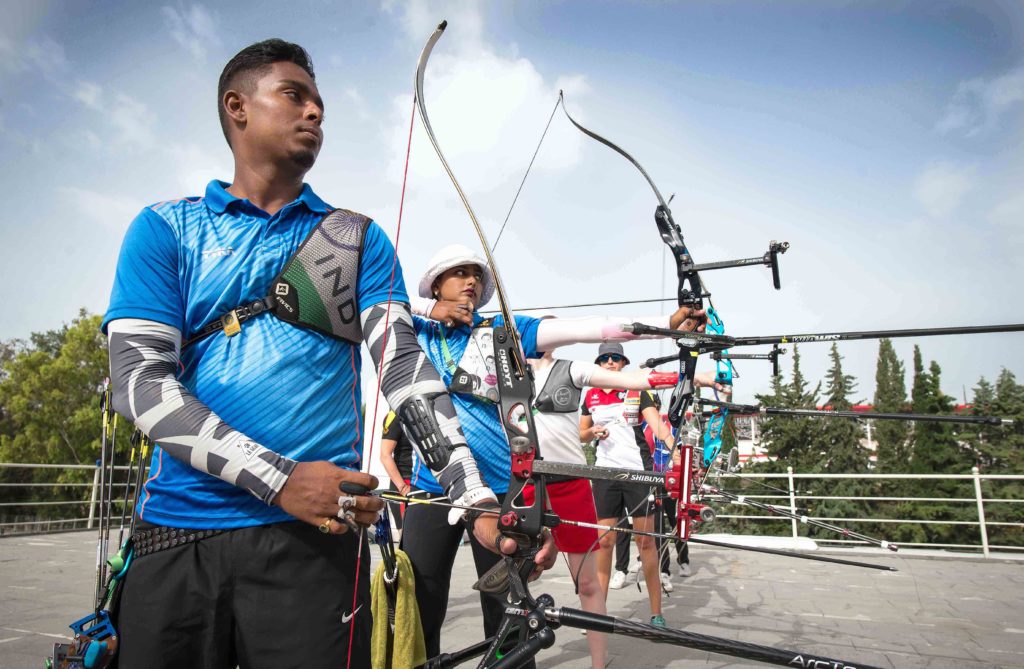
India remain a serious threat, most likely at team level, although many years of turmoil, financial problems and political issues may have taken their collective toll. The greatest star of all, Deepika Kumari, has never quite topped her gold medal performance at the Commonwealth Games in Delhi in 2010, although she remains perhaps the strongest chance of an individual medal.
India’s recurve team for the Archery World Championships was selected on 16th March after three days of trial at the KIIT University in Bhubaneswar.The men’s team is composed of Tarundeep Rai, Atanu Das and Pravin Jadhav while Deepika Kumari, L Bombayla Devi and Komalika Bari make up the women’s team.
Archers Deepika Kumari and Atanu Das announced their engagement earlier this year.
MEXICO
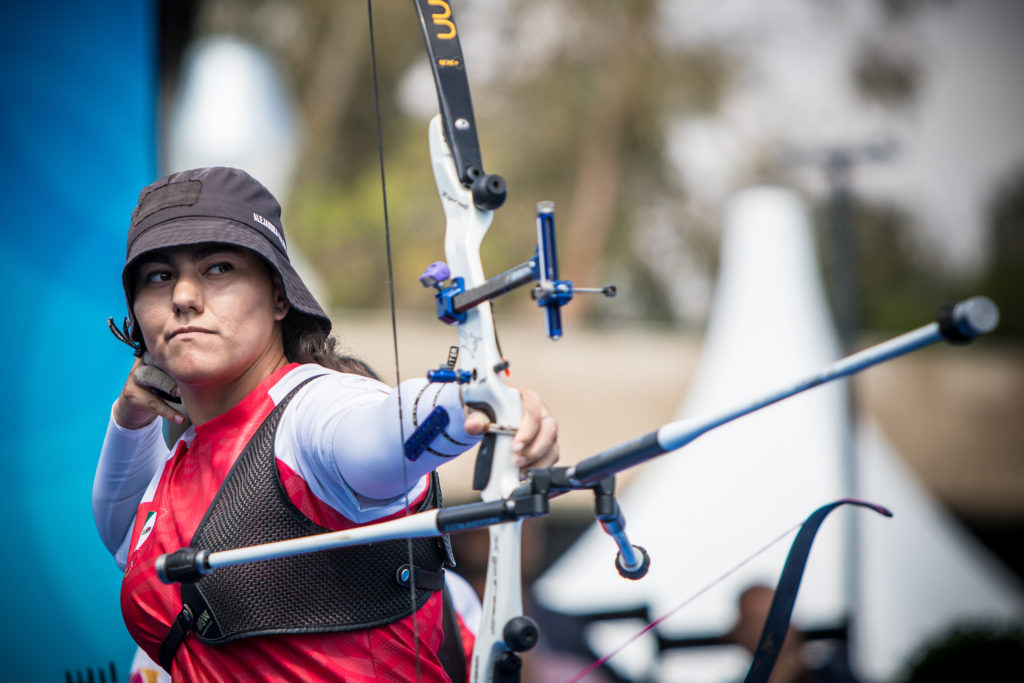
Aida Roman, Mariana Avitia, Alejandra Valencia, Angel Alvarado, Luis Alvarez and Ernesto Boardman have been named to Mexico’s recurve women’s and men’s teams for both the ’s-Hertogenbosch 2019 Hyundai World Archery Championships and Lima 2019 Pan American Games.
The women’s team is identical to the team that competed at the 2012 London Olympics, and suggests that no newer talents have come through the Mexican system recently. Mexico is another nation that has had significant issues with the sport at Olympic level.
OTHERS?
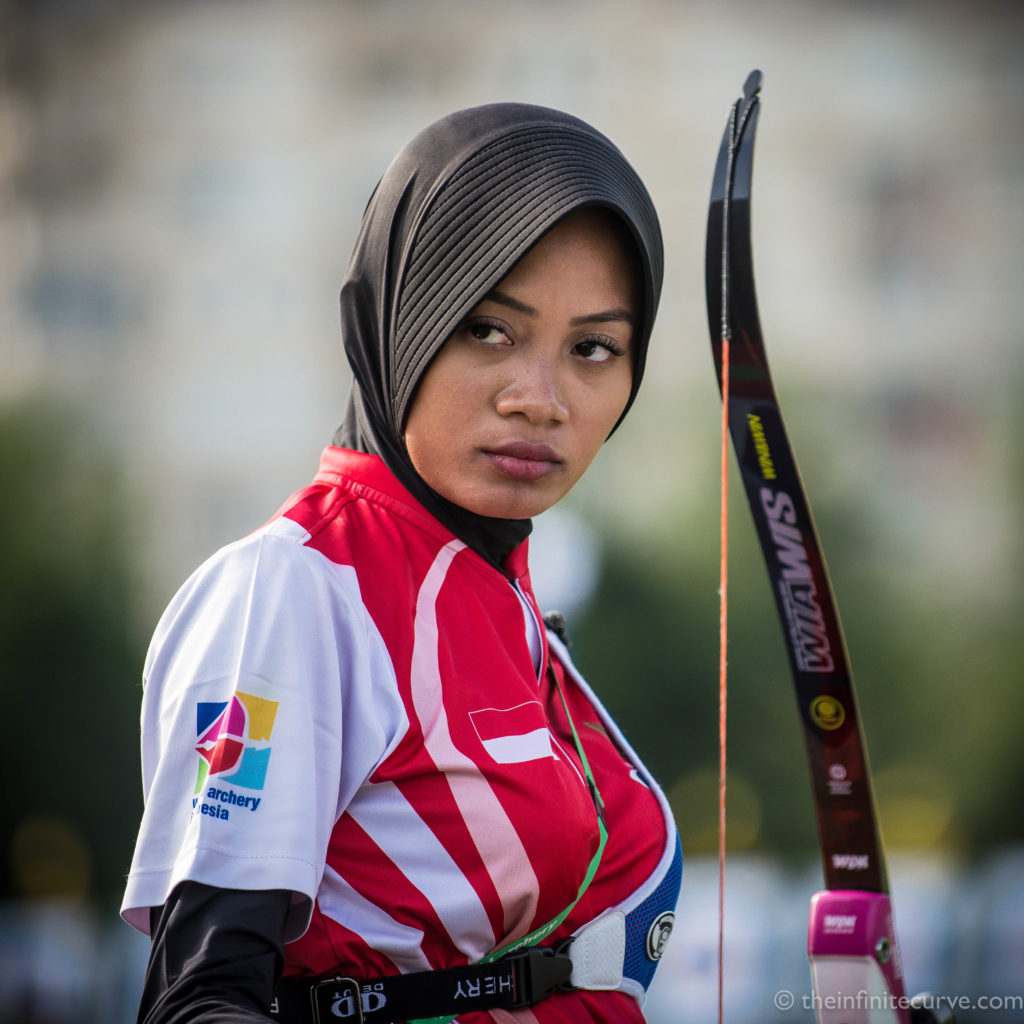
There are several other interesting nations that could produce results. Perhaps the most interesting are the disciplined and world-class squads appearing from Asian nations such as Indonesia, Malaysia, Myanmar, and Kazakhstan, as well as the usual powerhouses of Korea, Chinese Taipei, China, and Japan. The world of elite archery is still focused towards the east – although the big European nations will hope to have plenty to say.
The World Championships will be broadcast live on BBC Sport online and on many other TV stations and online throughout the world. Please check worldarchery.org for full details.

